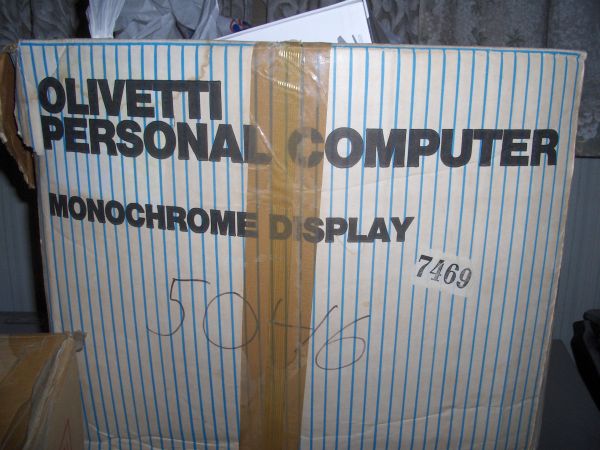
This box once contained a monochrome display. Those were the days, when we had time to read books but did not know where to find them. (There are still a few books in this box, though. All non-fiction.)
Using my amazing powers of mind, I recently traveled to the year 1988, in a timeline very close to this one. OK, so it is not some supernatural power that nobody else has – it is just a combination of imagination, memory and Google. (And occasionally dice.) But it works for me.
One thing that struck me was how different 1988 was from now. On the surface of it, things were much the same. Most people had already begun to work in the post-industrial economy, for instance, and the cars did not look all that different from now. It was already common for men and women both to work outside home, and (in sometimes unrelated news) divorce was already common. All significant political parties had the same names, at least in the western world, and the borders between nations were the same as now with a few exceptions (mainly in the communist world). Ordinary people ate pizza, watched TV and occasionally had sex. It does not really look all that different.
But then there are the computers. Oh, we had computers in 1988 too. The IBM Personal Computer was launched in August 1981. I already had one at home, and we had a few at the office too, as had many other offices in the reasonably rich world. But they were not really the same thing as we have today. They were slow and primitive in every way. Their capacity was very small. The pictures on the screen were blocky and usually in monochrome, typically green and black, although by 1988 there were color monitors and color video cards (typically bought extra). They were still blocky though.
The power of computers double roughly once every one and a half year. Let’s see: 3 years = 4 times, 4.5 years = 8 times, 6 years = 16 times, 7.5 years = 32 times, 9 years = 64 times, 10.5 years = 128 times … Conveniently, this means 5 years is approximately 10 times and 10 years approximately 100 times. So the computer 25 years ago was 100*100*10 times weaker than today, overall. 100,000 times. This kind of explains why my smartphone is fantastically more powerful than all the computers of my workplace back in the day.
In 1988, we still had physical file cabinets to store the vast amount of paper required by the bureaucracy. Bored housewives were hired to store and retrieve these papers, and spent much of the day with their butt in the air because some uncharted law of the universe ensures that most of the papers always end up in the two lower drawers, no matter what sorting your choose in advance. Many of these later developed severe back pain and became disabled, although around the time the physical file cabinets disappeared and were replaced by virtual file cabinets which you can still see on your computer screen. Kids these days probably don’t know that the folder icon is actually a picture of something that once existed in the physical world.
There are still books in the physical world, but Amazon.com has for quite a while now sold more ebooks than the sum of paperbacks and hardbacks, and the proportion keeps sliding toward more e and less paper. Of course, there wasn’t an Amazon.com back then. At a time when there were no awesome computer games, no social networks and no YouTube to distract me, I still did not read thousands of interesting books, because I did not know that they existed. And even had I known, I would have had no idea how to get them. Even if I knew the publisher, chances were small that the books were imported to Norway unless they were extremely mainstream (and therefore not all that interesting to me). Although I think I discovered Piers Anthony around that time? That sounds early, but I had read him for several years when someone made a computer game based on one of his Xanth books, and the game was rather bad and mercifully forgotten by most of the world long ago.
Now, I can get almost anything from Amazon.com, and in many cases download the books instantly to my lightweight Samsung tablet. But now I have so many fun things to do that I end up not reading many books. There is never a time for books, it seems.

Tell me more about the new mind?